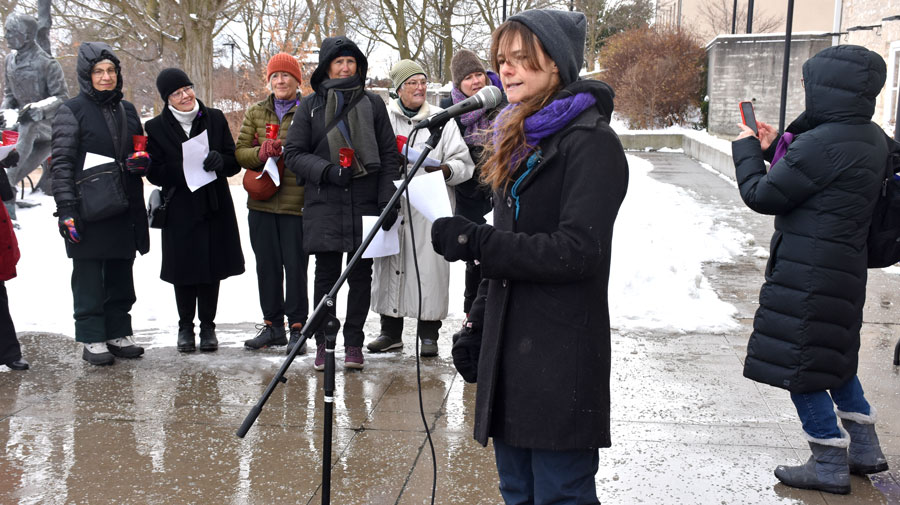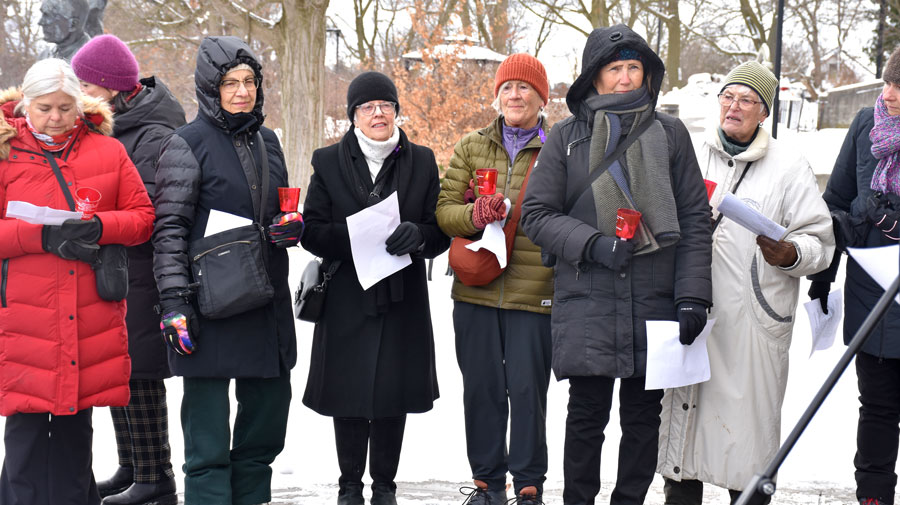GUELPH – Remembering matters. Memorializing matters.
And standing up against femicide really matters, said public educator Cindy McMann at the Dec. 6 vigil organized by Guelph-Wellington Women in Crisis.
This was the first year the vigil, also called National Day of Remembrance and Action on Violence Against Women, was held at noon outside the Guelph Civic Museum.
For the past 35 years, ever since Marc Lépine gunned down 14 women at Montreal’s Ecole Polytech, the organization has held an evening vigil in Marianne’s Park.
But it was still cold on that windy corner of the building. It was still emotional.
It was still uncomfortable and downright tragic to hear the names of the 14 women who were killed in the Montreal Massacre: Geneviève Bergeron, 21; Hélène Colgan, 23; Nathalie Croteau, 23; Barbara Daigneault, 22; Anne-Marie Edward, 21; Maud Haviernick, 29; Barbara Klucznik, 31; Maryse Laganière, 25; Maryse Leclair, 23; Anne-Marie Lemay, 22; Sonia Pelletier, 23; Michèle Richard, 21; Annie St-Arneault, 23; and Annie Turcotte, 20.
And then the names of the 62 women and children killed in 2024 in intimate partner violence were read aloud too.
They ranged from two months old to 82 years old and lived in every corner of the province.

Victims – It’s important to remember the victims of femicide, said Women in Crisis public educator Cindy McMann.
“Femicide is a profound annihilation of humanity,” said McMann, noting the perpetrator dehumanizes his victims and stops any feelings of empathy or sympathy.
“Memorializing these women is an act against dehumanizing them,” she continued. “It matters. These 14 women matter. These 62 women and children matter. When we remember we are resisting.”
Guelph councillor Dominique O’Rourke was a student in 1989 and recalled her shock and outrage at the time.
Now, 35 years later, her daughter is a student and O’Rourke continues to worry about women’s safety – at school, in the workplace, in public places and in their own homes.
“Where is a safe place for women and trans folks?” she asked.
“We need to be vigilant. We need to keep safe spaces. And we need to keep blowing up barriers to equality.”
McMann noted that last year Guelph declared intimate partner violence an emergency. She said people need to push the province to do the same, “and then fund it like it’s an emergency – because it is.”
Individuals can check in on their family, friends and neighbours and help them find resources if they are victims of violence.
“The more we wrap around people in our lives, the more we can make an impact,” she said.




